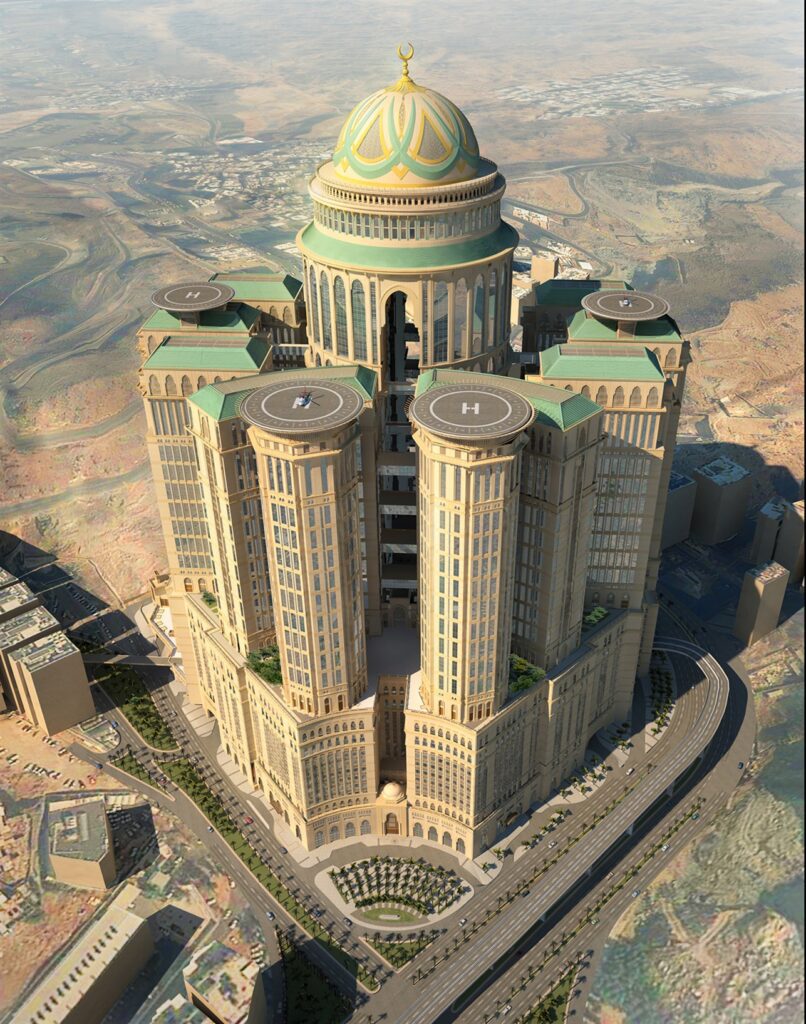Once envisioned as the largest hotel in the world, the Abraj Kudai in Mecca, Saudi Arabia was set to redefine luxury hospitality.
With 10,000 rooms, 70 restaurants, and four helipads, the project was designed to accommodate the growing number of pilgrims visiting the holy city. However, more than a decade after construction began, the hotel remains unfinished, with little hope of ever welcoming guests.
A grand vision stalled
Construction of Abraj Kudai began in 2015, with an estimated cost of $3.5 billion. The hotel was designed as a ring of 12 towers, each standing 45 stories high, with five floors exclusively reserved for the Saudi royal family. The interiors were to be crafted by London-based Areen Hospitality, promising opulent décor and world-class amenities.
However, the project hit major financial roadblocks in 2015, when Saudi Arabia faced economic challenges due to fluctuating oil prices. The Saudi Binladin Group (SBG), the construction firm behind the project, suffered further setbacks when a crane collapse at the Grand Mosque in Mecca led to 107 deaths, resulting in the company being banned from receiving new state contracts. This halted construction indefinitely, leaving the site in limbo.
Why it may never open
Despite Saudi Arabia’s ambitious tourism push, Abraj Kudai remains a ghost project. While the Kingdom has invested heavily in mega-developments like Neom, the hotel has not seen any significant progress. Reports suggest that contractor disputes, financial instability, and shifting priorities have left the project abandoned, with rubble and cranes replacing the grandeur once promised.
The scale of the project also presents challenges. With Mecca already boasting more hotel rooms than Las Vegas, the demand for such a massive property remains questionable. Additionally, new luxury hotels from Marriott and Radisson have filled the gap, making Abraj Kudai’s completion less of a necessity.
A lost opportunity
Had it opened as planned, Abraj Kudai would have been a marvel of modern hospitality, catering to millions of pilgrims. Instead, it stands as a cautionary tale of overambition, proving that even the most grandiose projects can falter under economic and logistical pressures.
Will it ever open? Unlikely. But in a country where scale is never a limitation, perhaps one day, Saudi Arabia will revive its forgotten mega-hotel. Until then, it remains a monument to what could have been.


